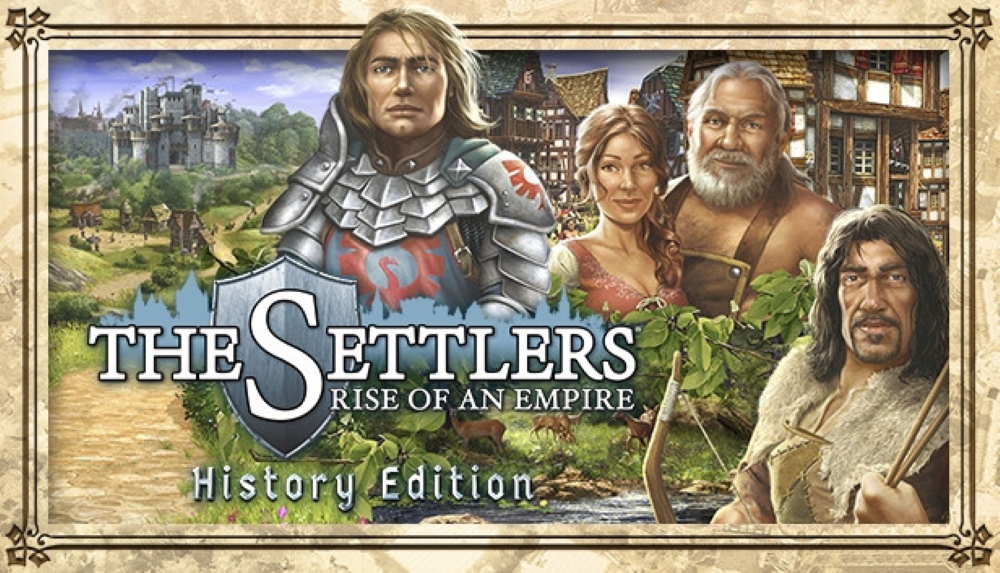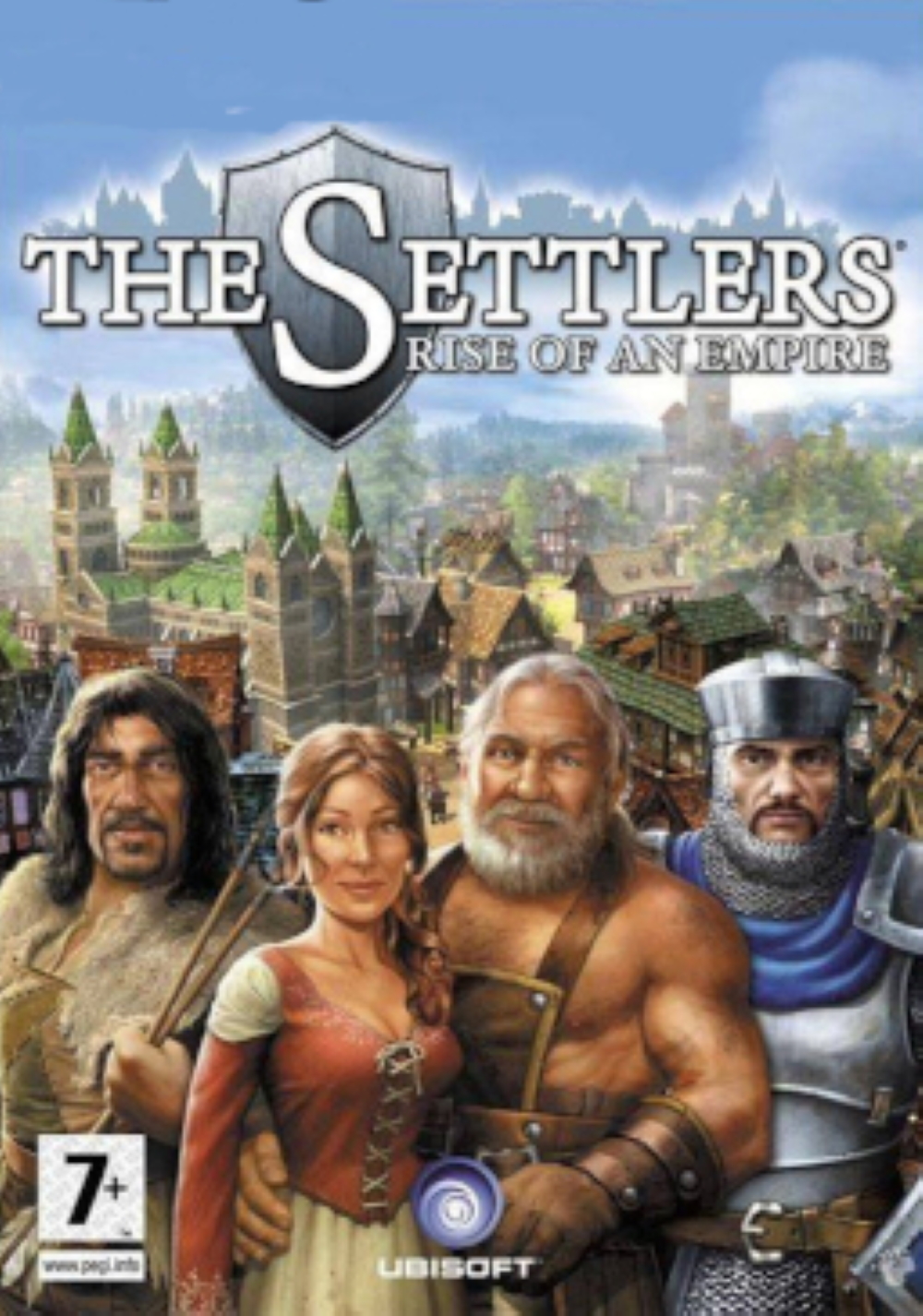Volker Wertich
('The Settlers') game designer / creative director
Germany
'Die Siedler' ('The Settlers') series revolutionized the genre of building strategy games and is one of the most popular of its kind - not only in Germany. The legendary PC game (awarded „Best Social Game“ in 2010) was developed by Volker Wertich. He is responsible for the first part, published in 1993, as well as its third installment (1998). This is the basis of his reputation as a guru of the computer games industry.
Volker Wertich
('The Settlers') game designer / creative director
Germany

Being only 24 years old, he created the medieval world of 'The Settlers' within 20 months and with a budget of just 200.000 Deutsch Marks. The player starts with a castle including raw materials and many industrious players (settlers). Through skill it is possible to expand the empire and property. The workers can specialise in individual professions, goods are produced and more buildings are erected. Soon military facilities are needed to further the expansion.
The passion for electronic games was awakened in Volker Wertich (* 21 July 1969) at the tender age of ten during a holiday with his parents. In the indoor swimming pool of the Austrian ski resort Kitzbühel, he was fascinated by an arcade game machine. To be able to play 'Space Invaders' at home, the son of an electrical engineer was given an Atari 2600 console and a module to write small programmes. At the age of fourteen, the mathematics enthusiast, who had already created his own board games as an eight-year-old, sold his first self-invented game. Four years later, shortly before graduating from high school, 'Emerald Mine' followed.
The career path was mapped out for him, a self-taught game developer: After working with the respected Blue Byte GmbH, Wertich founded Phenomic Game Development in 1997. There, among other things, the groundbreaking 'SpellForce: The Order of Dawn' (2003), which combines elements of real-time strategy, fantasy and role-playing games, and 'BattleForge' (2009) - a mixture of real-time strategy and collectible card game - were published. When Electronic Arts took over this game development studio, he became its managing director. Seven years later, Wertich appeared as Creative Director of Envision Entertainment, which he founded together with former colleagues. True to the company slogan "Create worlds for gamers to connect and master challenges", free-to-play online games are developed there. Also in 2013, Volker Wertich received the Special Jury Prize at the German Developer Award. In 2016, Envision Entertainment was awarded the German Computer Game Prize for 'Path of War', its first mobile game.
Volker Wertich, who is the father of two sons, lives in Ingelheim (Germany).
Interview July 2015
More than just a game: 'The settlers' caused a revolution!
"The first step for me is always an idea combined with the motivation to turn this idea into reality. If this desire is strong enough, then one overcomes many difficulties to put oneself in the 'state of doing'.
Inspiration/intuition, in my view, can always arise. Often it just gets eclipsed for a long time by the noise of the daily issues and problems at hand.
Deadline pressure itself is not helpful for something to come into being, but it can ensure that the focus is directed to the important questions before it is perhaps too late.
I get a lot of ideas when I'm alone. This can be in my office, but also completely without planning to deal with a topic - for example, on a hike or in the shower. Another way for me is to discuss with another designer, in which certain ideas are pursued step by step together and others are discarded. When pondering, it happens that I run in circles - an observation I also make with my children.
If the deadline is given, but no inspiration/intuition has materialised, the deadline must be postponed; anything else will not lead to the goal. In my line of work, implementing an idea is so much more involved than brainstorming that the subject should be thought through as best as possible beforehand.
For a game designer, it is necessary to deal with other games as well. But instead of briefly looking at countless products, it is much more important for me to take a very close look at selected games. It also happens that I basically like a game, but I think: 'Nicely done, but if you would now do this and that differently, then...'.
In the brainstorming phase, ninety per cent of the ideas are discarded. That is quite normal. There is no simple rule for good and bad ideas, but you constantly question yourself: Does this fit with the previous favoured ideas? Is it too complicated, could it be simpler without cutting out what is important? Can it be balanced later? Will it be fun and motivate the player? Is it appropriate for the target group?
To record ideas and make decisions, I work a lot on 'whiteboards', i.e. whiteboards/flipcharts. These serve as a quick experimentation ground, at the same time as a memory aid and as a framework to tell other people about the idea, the concept or a solution. Before moving on to the next topic, the ideas are at least photographed and archived.
It's a special feeling when you are convinced of an idea - for example, because it elegantly solves several problems at once or opens up completely new possibilities.
In our industry, an idea is turned into a game design, which is then the 'blueprint' for all other departments to implement. Naturally, we designers have the greatest influence on the final product. However, it is also the case that priorities can shift in the course of a project: After an idea has been turned into reality and experienced, you realise that an aspect previously considered unimportant is particularly fun - or vice versa.
Creativity cannot be forced at all. However, I do not consider efficiency and ambition to be counterproductive at all, because initiative and perseverance are necessary! Generally speaking, a person's creativity cannot be measured in the short term. It can only be better assessed over longer periods of time.
Creativity requires a basic talent, which - in my opinion - cannot be learned. If you confront children with a mountain of Lego bricks without further instruction, one of them will build completely amazing things while many can only do little with them.
In game design, every idea or decision is a compromise. In the end, any disadvantages are always accepted for the advantages. A good idea has more or weightier advantages and will therefore please the audience better.
To the question 'How is it possible to remain artistically true to oneself but be innovative without denying one's style and still reinvent oneself?' there is, as I see it, only one answer: if you are forever copying yourself, then you are no longer creative. Innovation and change are important, but you don't have to (and hardly can) completely discard your previous path.
Being ahead of your time is the most important aspect of progress through creativity! But it also means not being successful materially. Depending on whether one is active here as an individual or perhaps the existence of an entire company depends on it, one has to weigh up 'how far out one sails'.
At what point the creative process, i.e. the work itself, is completed and can be released, there has been an interesting development in the games sector for many years: most games are no longer completed, but are always developed further as long as customers are still interested in them. As a result, a project often only finds an actual end many years after it has been released.
What is striking in my industry is that the temptation to 'recycle' something is very high. Tens of millions are invested in larger game projects and the backers naturally want guarantees. Sometimes it works that a game gets almost only 'improved graphics' and is still successful again. But many brands have already perished as a result. Conversely, too radical a change in the follow-up product can also cost success. I am always in favour of clear innovation without uprooting the roots.
Success has numerous dependencies that cannot be rudimentarily excluded by a good idea. The entire realisation of the idea usually depends on many other comrades-in-arms; in addition, there are numerous other factors such as marketing, financing, changes in the client's priorities or structures, competition and so on.
Knowing what one's potential audience wants is no guarantee of success, because most people don't know what they want until they hold it in their hands or experience it. It would also be too easy to derive the perfect product directly from survey results.
If a hit is made, one should remain open to other opinions and not imagine too much about the success. Sooner or later you will also have to deal with failures. I have already had the experience that the critics loved our project, but it did not pay off the investment costs.
One of our online games was not successful at first, but our client, like us, believed in the project itself. We were able to improve the game experience step by step in the following months, so that the number of players kept increasing and the project was still successful on the market for several years. So perseverance can be important!"
MY FAVORITE WORK
"Having played numerous other computer games in my younger years, I had the idea that individual aspects of these games could be combined to create a whole new experience, resulting in something unique. I wanted to create a game in which the player, like a god, secured territory on a map against competitors, as in 'Populous', but at the same time had the creative freedom of a building game like 'Sim City' and intelligently acting subjects similar to the independent characters in 'Little Computer People'. Thus the idea for 'The Settlers' was born. It would then take me another two years to realise the concept myself."

